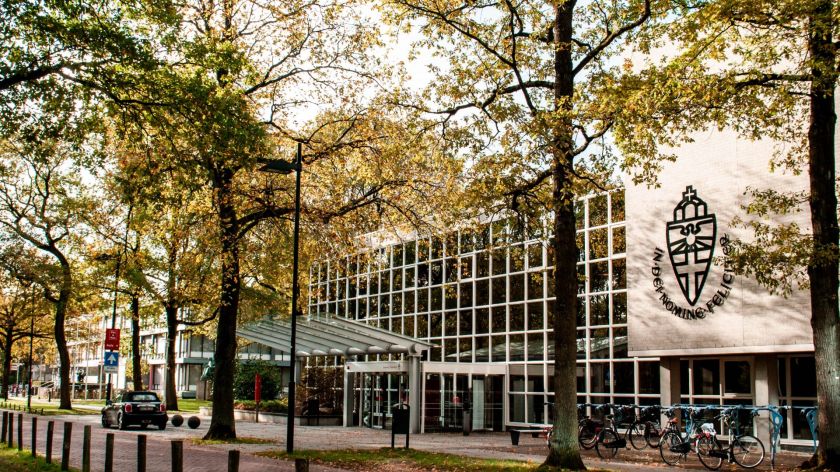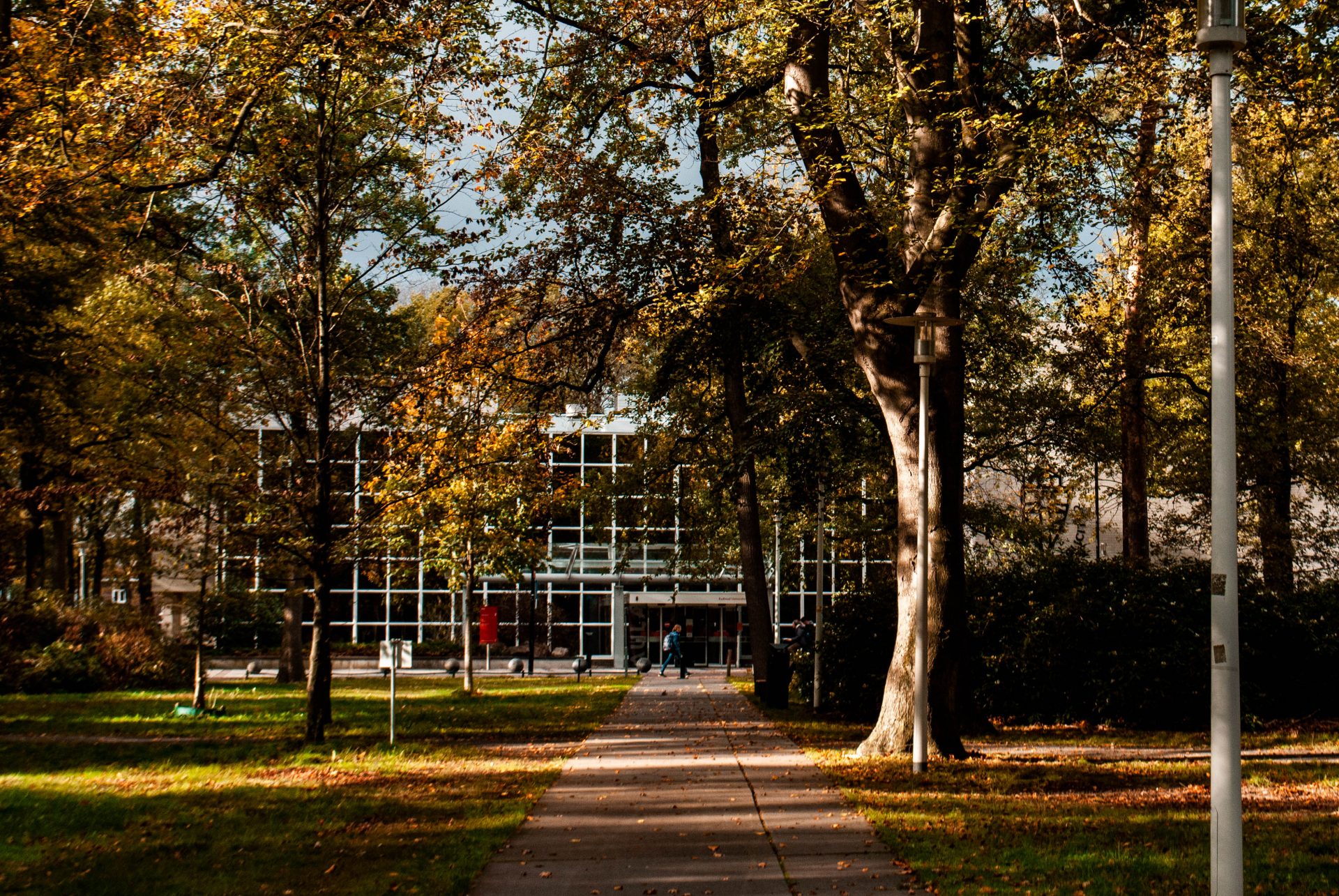Potential plan for new framework to make participational bodies more transparent and efficient
-
 De Aula. Foto: Diede van der Vleuten
De Aula. Foto: Diede van der Vleuten
The structure of the university participational bodies may undergo a major overhaul, which could affect everything from Programme Committees to university-wide meetings. A plan should be in place by the end of this academic year. The main aim is to make meetings between the participational bodies more manageable.
A large, complicated situation that cannot be untangled so easily: this is how President of the Executive Board (CvB) Daniel Wigboldus described the structure and rules of the university participational bodies.
Due to its status of special university, Radboud University may deviate from the national rules that are set out in the Higher Education and Research Act (WHW), which establishes the rules on participation (see text box on the right). Radboud University has made frequent use of this right in the past.
On each occasion, there were good reasons for why this was done, says the outgoing President of the Executive Board. ‘But over the years, this is the very thing that contributed to an increasingly complicated web of agreements and arrangements. A web whose structure is sometimes a mystery even to the members of the participational bodies.’
Special university
Radboud University is a special university. The university evolved from a foundation and therefore has a different legal nature from public universities. This proprietary nature is basically what makes it possible to deviate from the Higher Education and Research Act (WHW).
In an effort to change this, the Executive Board (CvB), University Student Council (USC) and Works Council (OR) joined forces. Before the end of the academic year, a proposal is due to be submitted for new rules for the participational bodies, which should make the participational bodies more visible and more accessible to all of the parties involved.
The process of formulating this proposal is now underway. President of the Executive Board (CvB) Wigboldus, Rens Thiecke (Chair of the Works Council (OR)) and Stijn Andringa (Secretary of the University Student Council (USC)) explained what is due to happen this year.
Simply put, the structure and the rules are unclear. Tell me, how did this happen?
Wigboldus: ‘Because of all the deviations, it has become difficult to discern why we are in accordance with the Higher Education and Research Act (WHW) in some aspects but not in others. As a result of this, we have regularly talked to each other about what is exactly happening with the regulations, instead of having a more substantive conversation.’
Could you give us some specific examples of this?
Thiecke: ‘A discussion on numerus fixus study programmes is due to take place soon. According to the Higher Education and Research Act (WHW), student administrators (or in Radboud University’s case, the University Student Council (USC), ed.) have a say in this. But we did not actually adopt these rules. This means that when we make a decision about this, the University Student Council (USC) will be able to participate, but not vote. Even though this decision does concern the student council directly.’
‘The Higher Education and Research Act (WHW) is obviously not a gold standard either’
‘Another example is the Internationalisation in Balance Act (which focuses on less English-language education, ed.), which will be introduced in the near future. This act will give the Programme Committees (PCs) the right of consent on the choice of language in which a study programme will be taught. But the Programme Committees at our university do not have this right, because in this respect we automatically deviate from the Higher Education and Research Act (WHW). This means that we won’t be able to simply introduce the act and that we will have to make our own regulations again.’
‘Because we deviate from the Higher Education and Research Act (WHW) in some aspects, we are also not able to consider case law. Even though this could often be quite useful. We will always need to revert to our own rules.’
Wouldn’t it be easier to adopt the Higher Education and Research Act (WHW) in its entirety?
Andringa: ‘The Higher Education and Research Act (WHW) is obviously not a gold standard either. Needless to say, it involves choices that must be made, which means that there is no option for ‘adopting it in its entirety’. For example, we have a shared system in which the Works Council (OR) and University Student Council (USC) both get to have a say. Other universities have an undivided system where these councils serve together in one body.’
Thiecke: ‘This is also the reason for this investigation. We will be discussing which choices we will need to make in order to create a foundation. And which amendments we might also need to make.’
Future-proof participational bodies
The process of making Radboud University’s participational bodies future-proof began earlier this year with a symposium. Two ‘pick-up sessions’ recently followed, in which various forums provided their input. Two more such sessions will follow this week. After an initial writing round, the forums may provide feedback on the preliminary proposals again in January. A fully developed proposal should ultimately be completed by the end of the academic year.
What came out of the symposium that initiated this process?
Wigboldus: ‘It was mainly an initial meeting of all of the members of the participational bodies and an explanation of exactly how the Higher Education and Research Act (WHW) works. I had the impression that for many attendees it was the moment that they realised ‘Oh, so that’s how it actually works’.’
How is it possible that many members of the participational bodies don’t even know how their own participational bodies work?
Andringa: ‘You have different regulations for each level of the participational bodies. For example, if you are a Programme Committee (PC) member, your role will be different to that of a Works Council (OR) member. You will mostly be concerned with what is relevant at your level and what is relevant to your task.’
Who will be consulted during this process, and what will they be talking about specifically?
Thiecke: ‘The impact of the Higher Education and Research Act (WHW) is greatest at the faculty level. That’s why we also want to gather input from all of the forums within the academic community. At the university-wide level, we have about 550 people in participational bodies.’
‘It is especially during times of budgetary constraints that it’s important to collectively look at how processes can be improved’
‘They will have a say in the interpretation of how certain choices are made. What will change if we move from a shared to an undivided system for participational bodies? And how many people should serve in a body? What should the voting ratios be? Who should have which voting rights on certain issues – and should the voting proportions always be distributed the same for each issue?’
Andringa: ‘We could work everything out for each level of administration, but it is obviously much better to get this input from the people themselves.’
Students are only elected to the various bodies for one year. Staff members basically serve two years on a Representative Council (OC) or Works Council (OR). This means that there is a heavy rotation of members.
Students are only elected to the various bodies for one year. Staff members basically serve two years on a Representative Council (OC) or Works Council (OR). This means that there is a heavy rotation of members.
Wigboldus: ‘This is why we got started straight away and said that we would try and do this within one academic year so that there wouldn’t be too many changes.’
How feasible is it to finish this task within that cycle? From experience, many large, university-wide projects often take years to complete.
Thiecke: ‘We have a strict timetable, but we’re currently on schedule. It is also about the choices that we make, not their full implementation. The amount of time that it will take will depend on which choices we make.’
The university will need to make significant cuts. Will this still play a role in this process?
Wigboldus: ‘I understand that thought, but it is especially during times of budgetary constraints that it’s important to collectively look at how processes can be improved. This leaves more time to talk about substantive choices.’
What about the idea behind the distribution of appointed and elected seats in the University Student Council (USC) (as a result of the Higher Education and Research Act (WHW)), which was abandoned at the last elections?
Thiecke: ‘That was already done in anticipation of this process. And that was also a permanent decision.’
In recent years, the turnout at student council elections has not been particularly high. In 2023, there was even an all-time low. Will the new regulations change this too?
Andringa: ‘It’s hard to say. The turnout was comparable to other universities. But we definitely want to make the participational bodies more visible to students. So that they understand how they are structured. And then hopefully we can also make them more appealing.’ Thiecke: ‘This actually also applies to the Works Council (OC); we also want to make it more visible and more appealing.’
Would you like to take part in the discussion?
Staff members and students who are not in a participational body are also welcome to provide input to the project. They can contact the process managers by sending an email to [email protected].




